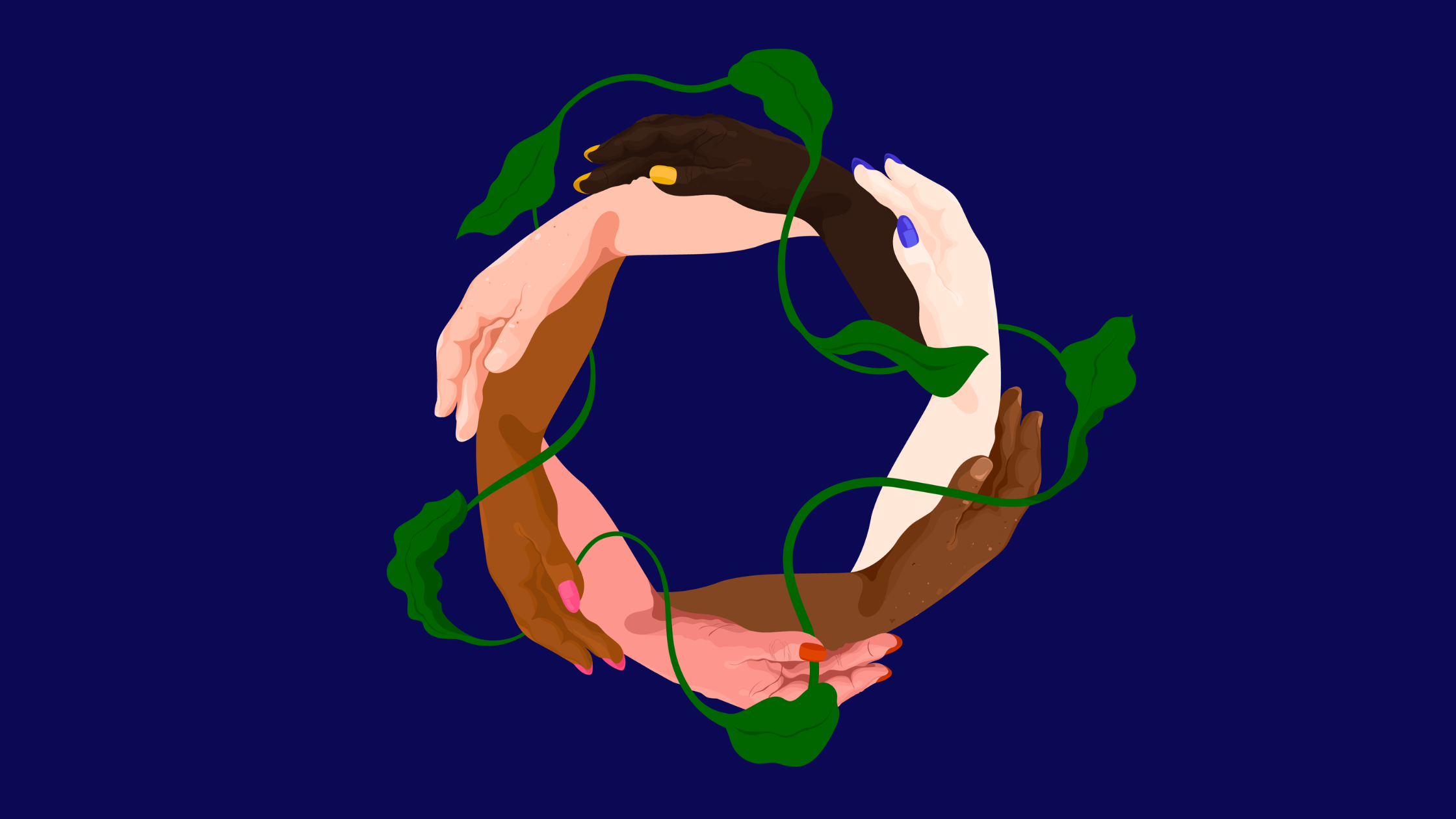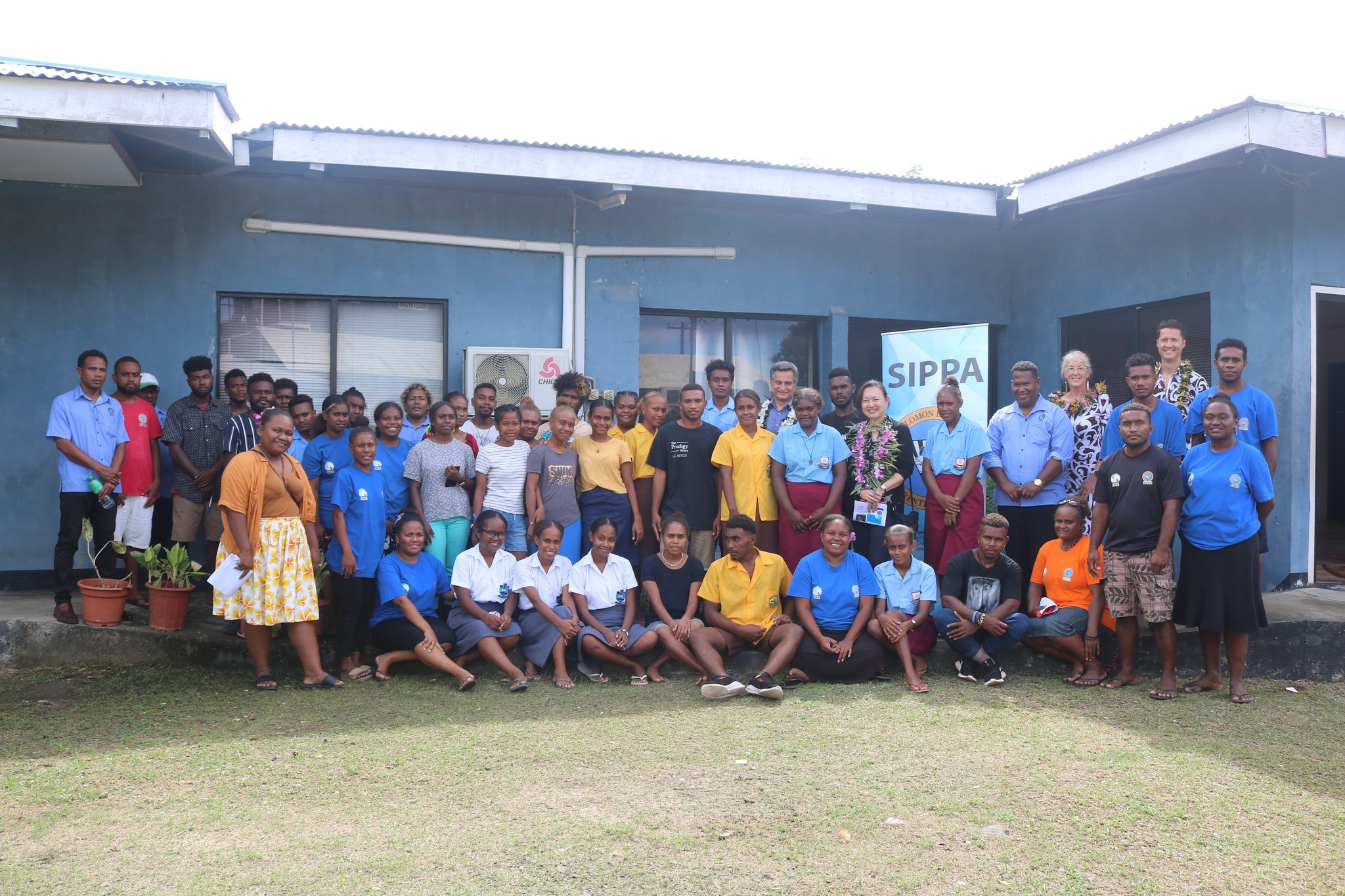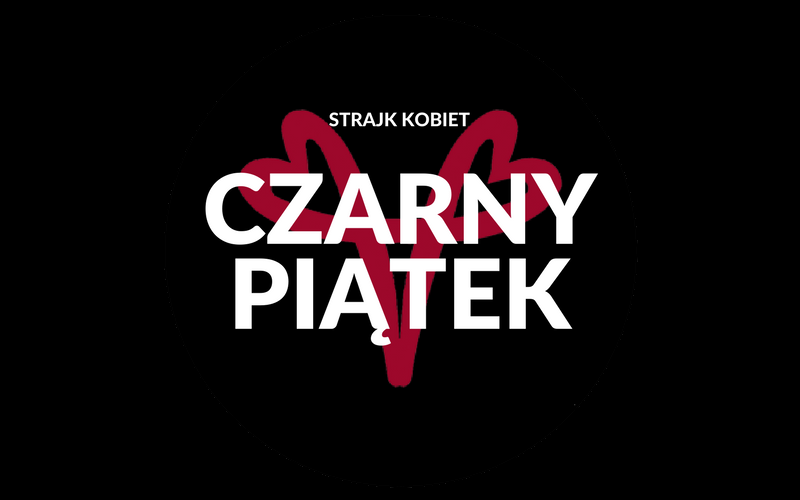
Spotlight
A selection of news from across the Federation

IPPF Statement on the 68th session of the Commission on the Status of Women (CSW)
IPPF welcomes the agreed conclusions of the 68th session of the Commission on the Status of Women (CSW), on the theme of “Accelerating the achievement of gender equality and the empowerment of all women and girls by addressing poverty and strengthening institutions and financing with a gender perspective”. IPPF actively engaged in the process by providing technical inputs to Member States, raising awareness about the interlinkages between SRHR, poverty, gender equality and the empowerment and human rights of all women and girls.
Filter our news by:


| 11 August 2023
Australia's New International Development Policy Sets out a Clear Pathway
Australia’s new International Development Policy was launched this week with a focus on building a peaceful, stable and prosperous region. Announced as the first long term development strategy in almost a decade, it was welcomed by those in the development sector. In contrast to the former government, Australia’s Foreign Minister has committed to rebuilding their ODA budget. While this is likely to be a slow build, with no ODA/GNI targets set, the new policy sets out a clear pathway. IPPF welcomes the policy’s approach to localisation, the strong focus on climate resilience and humanitarian action, the commitment to gender equality and LBGTQI+ rights and the ongoing support for sexual and reproductive health and rights. The new policy has a strong focus on Australia’s role as a development partner in the region. While the geographic focus remains unchanged, the approach is quite different. At the launch, Minister Wong highlighted the importance of sovereignty, where ‘each country can determine its own fate’. In practice for DFAT, this will mean greater accountability at post, more collaborative development of country Development Partnership Plans, more frequent progress reviews and a greater emphasis on implementing learning from evaluation. It also translates to greater investment in local solutions, including funding to support partner governments, local procurement, and civil society. The announcement of a new Civil Society Partnership Fund was well received, although details are lacking. The other underlying theme which differs dramatically from previous aid policies is climate change, recognised by the Minister as the greatest shared challenge for the region. DFAT plans to increase climate investments and better address climate risk with a target that half of bilateral and regional investments must have a climate objective by 2024-25, increasing to 80% by 2028-29. The policy also references a new humanitarian strategy, which will complement the aid policy and is due to begin consultation in September. Inclusion is a high priority within the policy. Minister Wong highlighted the importance of a region where ‘all can thrive and reach their potential’. Three focus areas for inclusion are Gender Equality, Disability Inclusion and LGBTQI+ rights, with supporting strategies in development, due for completion by the May budget 2024. The government is reinstating the target for 80% of development investments to address gender equality and a new requirement for investment over $3m to include gender equality objectives. While health is not a focus area within the policy, it was mentioned as part of infrastructure programming. The policy notes the vulnerability of many health systems in the region and Australia’s continued role to strengthen capacity and support prevention and response for both infectious and non- communicable diseases. There is also a commitment to expand universal health coverage and a specific mention of support for sexual and reproductive health and rights. Resourcing for international development is explored in detail. Responding to the findings of the Development Finance Review and recognising the limitations of ODA funding, the policy proposes an increase in blended finance, and an investment of up to A$250m to leverage private investment. This will be supported by a new unit in DFAT to work with philanthropy and impact investment. The policy also highlights changes to reporting and accountability within DFAT, greater transparency of results, and increased investment in DFAT development capability (36.8m announced in the May budget). Since the integration of AusAID into DFAT in 2013, international development has been a low priority in Australia, undervalued and diminished through multiple budget cuts. The Albanese government has promised something different. While the lack of an ODA funding target is disappointing, this policy is a step in the right direction. The recognition of shared challenges and shift towards genuine engagement highlight an understanding of the value of development work, not just for beneficiaries but for the region as a whole. Together with DFAT’s investment in development capability and shift to a whole of government approach and Minister Wong’s outspoken commitment to the 2030 Agenda for Sustainable Development there are strong indications that Australia is taking development seriously. As recipients and partners of the Australian International Development program, IPPF look forward to supporting the roll out of the new Australian International Development Policy, consulting on the strategies and participating in the design of new programs. We hope to see the collaboration continue and the funding match the ambition. IPPF works closely with the Australian government and is funded through the Department of Foreign Affairs and Trade to integrate sexual and reproductive health and rights (SRHR) into humanitarian preparedness response and recovery through SPRINT; to restore services, particularly to marginalized populations impacted by COVID-19 through RESPOND and to support the ambitious Pacific Niu Vaka Strategy Phase 2, enabling quality SRHR to be realised for everyone in the Pacific. To read the full policy, click here. Cover illustration by Edinah Chewe for The Greats.

| 28 March 2023
IPPF’s Director General Visits Solomon Islands and Australia
The Director General of the International Planned Parenthood Federation (IPPF), Dr Alvaro Bermejo, is in Australia this week for high level meetings with Australian Government Ministers and the Australian Department of Foreign Affairs and Trade (DFAT). He is joined by Ms Tomoka Fukuda, Regional Director of IPPF’s East and Southeast Asia and Oceania Region (ESEAOR) and Ms Phoebe Ryan, IPPF’s Chief of the Australia and New Zealand Office. In Australia, Dr Bermejo has been privileged to meet with Australia’s Minister for International Development and the Pacific, the Hon Pat Conroy. Together, they discussed how Australia can play a leadership role in advancing sexual and reproductive health and rights through Australia’s international development cooperation.

| 22 March 2018
Polish Parliament Must Protect Women’s Health and Rights
We are deeply concerned by relentless attempts to roll back the reproductive rights of women in Poland. This week Poland’s parliament is debating a new draft bill entitled “Stop Abortion.” If adopted, this legislation will further limit the already restricted grounds on which women can lawfully access abortion in Poland. It will place women’s health and lives at risk and violate Poland’s international human rights obligations. We call on Members of Poland’s Parliament to listen to the voices of women across Poland and to reject this regressive legislative proposal and protect women’s health and human rights. Poland already has one of Europe’s most restrictive abortion laws. Abortion is only lawful to safeguard the life or health of women, in situations of severe fetal anomaly or where the pregnancy results from rape or another criminal act such as incest. Even in those situations in which abortion is legal, multiple barriers combine to limit women’s access in practice. The latest “Stop Abortion” proposal seeks to ban abortion in situations where there is a severe fetal anomaly. If the “Stop Abortion” bill is passed it will mean that abortion care will no longer be available to women in Poland when they receive a diagnosis of a severe or fatal fetal anomaly. Official statistics from 2016 show that in practice 96% of legal abortions in Poland are performed on these grounds. Most women in Poland who decide to end a pregnancy resulting from rape or because their health is at risk are unable to access legal abortion care in Poland and must travel outside the country to do so. This bill would further hinder women, particularly those from low-income and rural communities, from accessing safe abortion care. Since 2011, Poland’s government has launched repeated attacks on women’s reproductive rights. In 2011, 2013, 2015 and 2016 draft legislative proposals were introduced that contained total or near total bans on abortion. Following massive public protests, such as the Black Protests in 2016, these draft bills were defeated. Prohibiting women from accessing safe, legal abortion violates a number of human rights enshrined in international law, including the rights to life, health and health care, nondiscrimination and equality, privacy, and freedom from cruel, inhuman or degrading treatment. The European Court of Human Rights has previously ruled that the Polish government, in hindering timely access to abortion, has violated women’s rights under the European Convention on Human Rights. Numerous international human rights bodies, including the UN Human Rights Committee, the Committee on Economic, Social, and Cultural Rights, the Committee on the Elimination of all Forms of Discrimination against Women, and the Committee Against Torture, have called on governments to remove barriers to abortion services and ensure access to safe and legal abortion. Signatories Abortion Rights Campaign, Ireland Abortion Rights Coalition of Canada, Canada Abortion Support Network, United Kingdom ACAI, Spain Agrupación de Madrid del Forum de Política Feminista, Spain Albanian Center for Population and Development, Albania A.L.E.G. Romania Alianza por la Solidaridad, Spain Alliance des Femmes pour la Démocratie, France Alliance for Choice in Northern Ireland, UK ALRANZ Abortion Rights Aotearoa, New Zealand Amnesty International AnA Society for Feminist Analyses, Romania ANCIC, France Asia Pacific Alliance for Sexual and Reproductive Health and Rights (APA) Asociación con la A, Spain Asociación Feminista, Spain Association Défense de la Démocracie en Pologne, France Association des anciennes députées de l ‘Assemblée Nationale française Association for Family Planning and Sexual Health, Latvia Association HERA-XXI, Georgia Association Histoire, Femmes et Sociétés- revue Clio, France Association Mnémosyne, France AIED - Associazione Italiana per l'Educazione demografica, Italy Asian-Pacific Resource and Resarch Centre for Women (ARROW), Malaysia ASTRA Network ASTRA Youth Network Atria - Institute for Gender Equality and Women's History, the Netherlands ATTAC France ‘’AUT’’ LGBTIQ+ student initiative, Croatia Avortament Lliure i Gratuït. Dret al Propi Cos, Spain Avortement en Europe, les Femmes décident, France Autonomous Women’s House Zagreb – Women Against Violence Against Women, Croatia B.a.B.e. (Be active, Be emancipated), Croatia UK All Party Parliamentary Group on Population, Development & Reproductive Health, UK Beyond Beijing Committee, Nepal Calala Fondo de Mujeres, Spain The Catalan Family Planning Association, Catalonia Catholics for Choice Center for Community Mediation and Security, Romania Center for Health, Ethics and Social Policy, USA Center for Promotion and Defense of Sexual and Reproductive Rights, Peru Center for Reproductive Rights Centre Women and Modern World, Azerbaijan Center for Women's Studies of the Faculty of Philosophy and Social Sciences, University of Zagreb, Croatia CEDES – Center for the Study of State and Society, Argentina Centro de Estudios e Investigación sobre Mujeres, Spain CGT France CHOICE for Youth and Sexuality, the Netherlands City University of New York Law School, Gender Justice Clinic, USA Clínica Dator, Spain Colectivo de Salud Feminista, Argentina Collectif 13 Droits des femmes, France Collectif des Féministes pour l'Egalité, France Collectif Féministes contre le cyberharcèlement, France Collectif Libertaire Anti-Sexiste Collectif National pour les Droits des Femmes, France Confédération Française Démocratique du Travail, France Conseil National des Femmes Françaises, France Culture, Egalité, France Dziewuchy Dziewuchom Berlin, Germany Diverse Voices and Action (DIVA) for Equality, Fiji Doctors for Choice UK DOK – Democracy is OK, Poland Drogheda Abortion Rights Campaign, Ireland El Colectivo Hetaira, Spain Encore Féministes! - Network, France Ensemble! - Political Movement, France Equidad de Género, Ciudadanía, Trabajo y Familia, México Equilibres & Populations (Equipop), France Estonian Sexual Health Association, Estonia European Association for the Defence of Human Rights European Civic Forum European Humanist Federation, France European NGOs for Sexual and Reproductive Health and Rights, Population and Development European Parliamentary Forum on Population and Development European Women's Lobby Family Planning and Sexual Health Association, Lithuania Family Planning Association of Moldova Fédération de Normandie du Planning Familial, France Federation for Women and Family Planning, Poland Fédération Laïque de Centres de Planning Familial, France Fédération Nationale Solidarité Femmes, France Fédération Nationale Sud Santé-Sociaux, France FEMEN International Féministes pour une autre Europe, France Femmes Contre les Intégrismes, France Femmes Libres Radio libertaire, France Femmes pour le Dire, Femmes pour Agir, France Femini Berlin Polska Berliński Kongres Kobiet Manifest Wolnej Polski (Congress of Women), Poland FILIA Centre, Romania FOKUS – Forum for Women and Development, Norway Fórum de Política Feminista, Spain Frente Ecuatoriano por la Defensa de los Derechos Sexuales y Reproductivos, Ecuador Freedom of Choice FRONT Association, Romania Fundación Arcoiris. Mexico Fundación ASPACIA, Spain Fundación Desafío de Ecuador, Ecuador Fundacja im. Kazimierza Łyszczyńskiego, Poland Gals4Gals Lodz, Poland Gender Alternatives Foundation, Bulgaria GERT – Gender Education, Research and Technology Foundation, Bulgaria Gender Scan, France Global Doctors for Choice Global Fund for Women, USA Great Lakes Initiatives for Human Rights and Development, Rwanda H.E.R.A. – Health Education and Research Association, Macedonia HowToUse Humanists UK Human Rights Watch ILGA - Europe International Campaign for Women’s Right to Safe Abortion International Commission of Jurists International Federation for Human Rights, France International Women’s Health Coalition, USA IPPF European Network IPPF Global Federation Irish Family Planning Association, Ireland Kazakhstan Feminist Initiative "Feminita" KOD - Independent Group Berlin, Germany Kollektief Antikonceptie, Belgium Komitet Obrony Demokracji - Niezależaa Grupa Berlin, Germany L'Assemblée des Femmes, France L'Egalité, c'est pas sorcier, France La Paille et le Mil, France Ladder for Rural Development, Malawi League for International Women’s Rights, France Legal Center for Women’s Initiatives “Sana Sezim”, Kazakhstan Lesbian Group Kontra, Croatia Les Effronté-es, France Libres Mariannes, France Lights4Rights, Belgium Ligue des Droits de l'Homme, France Lobby Europeo de Mujeres- LEM España, Spain London-Irish Abortion Rights Campaign Luna Abortuscentrum Antwerpen, Belgium Marche Mondiale des Femmes France Marche Mondiale des Femmes Belgique, Belgium Marche Mondiale des Femmes Midi-Pyrénées, France Médecins du Monde, France Medical Students for Choice Mediterranean Women’s Fund, France Mujer y Salud en Uruguay Novgorod Gender Centre, Russia Osez le Féminisme!, France PaRiter, Croatia PARI o DISPARE, Italy Planned Parenthood Federation of America Planning Familial 76, France Planning Familial National, France Plataforma CEDAW Sombra País Valenciano, Spain Polish Society of Antidiscrimination Law, Poland Population Matters, United Kingdom Pro familia Bundesverband, Germany Regards de Femmes, France Regina Women’s Network, Lithuania Reproductive Health Matters Reproductive Health Training Center, Moldova RESURJ Roda – Parents in Action, Croatia Romanian Women's Lobby, Romania Ruptures, France Rutgers, Netherlands Safe2choose SALUS Foundation, Ukraine Sarajevo Open Centre, Bosnia Sensoa, Belgium Sexual Health Switzerland Sexual and Reproductive Justice Coalition, South Africa Sexual Rights Initiative, Canada Society for Education on Contraception and Sexuality, Romania Society Without Violence, Armenia Solidarité France Grèce pour la Santé, France S.O.S. Sexisme, France Spanish Federation of Family Planning (FPFE), Spain Surkuna - Centro de Apoyo y Protección de los Derechos Humanos, Ecuador Sustainable Health Development Center – VietHealth, Vietnam Tendo’s World (Arts & Health), Uganda L'Union des Familles Laïques (Union of French Secular Families), France Union syndicale Solidaires, France Union Women Center, Georgia Urgent Action Fund for Women’s Human Rights, USA Väestöliitto – Family Federation of Finland Voice for Choice UK WISH Associates, South Africa Women Enabled International Women’s Front of Norway Women's Global Network for Reproductive Rights (WGNRR) Women Help Women, Poland Women on Waves Women on Web Women’s International League for Peace and Freedom, France Women's International League for Peace and Freedom, Italy Women's Link Worldwide Women’s Resource Center, Armenia Women’s Rights Center, Armenia Women’s Room – Center for Sexual Rights, Croatia YouAct - the European Youth Network on Sexual and Reproductive Rights Youth Coalition for Sexual and Reproductive Rights Young Women for Change, Nepal Youth Champions Advocacy Nepal (Youth CAN), Nepal 40 ans de movement, France














